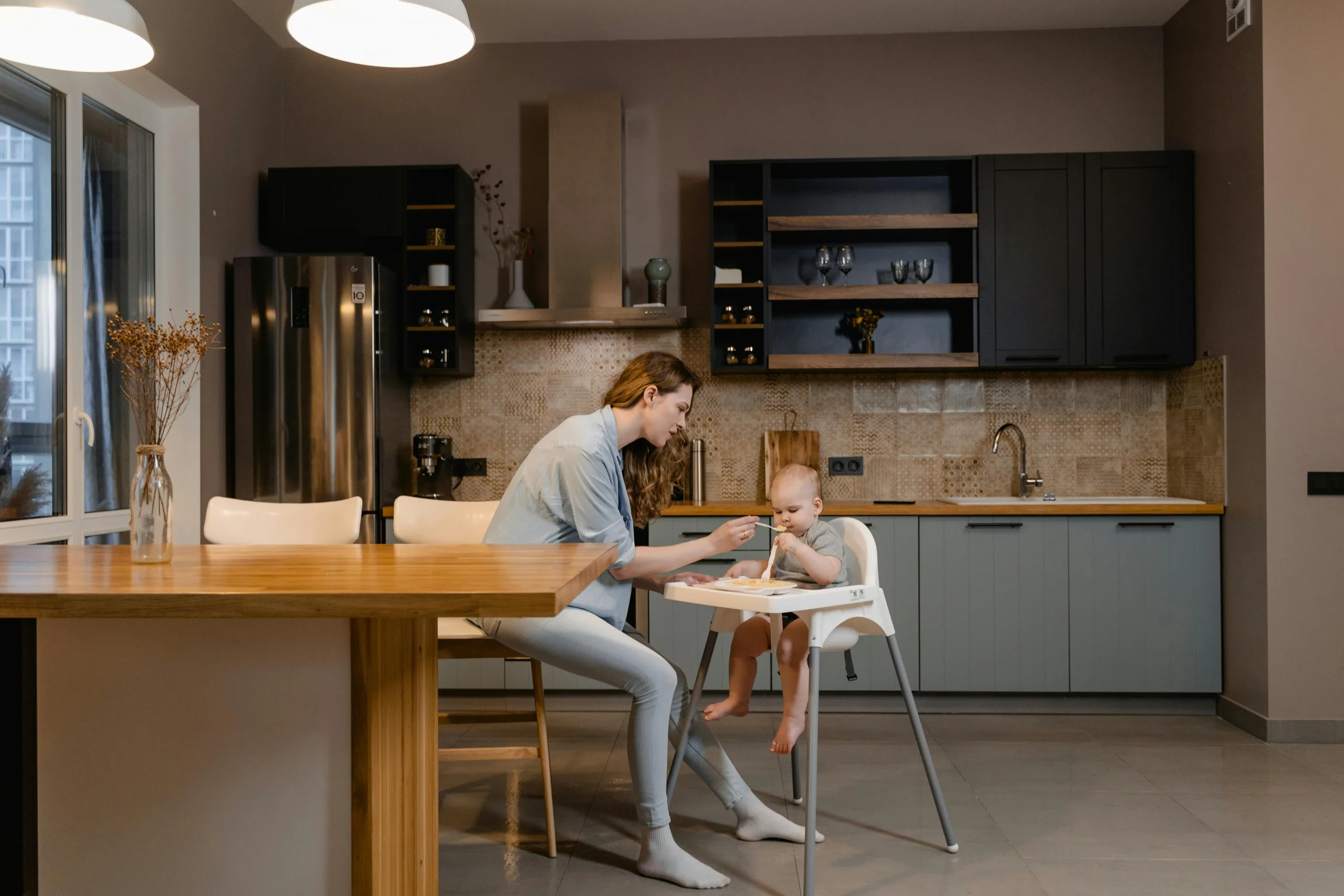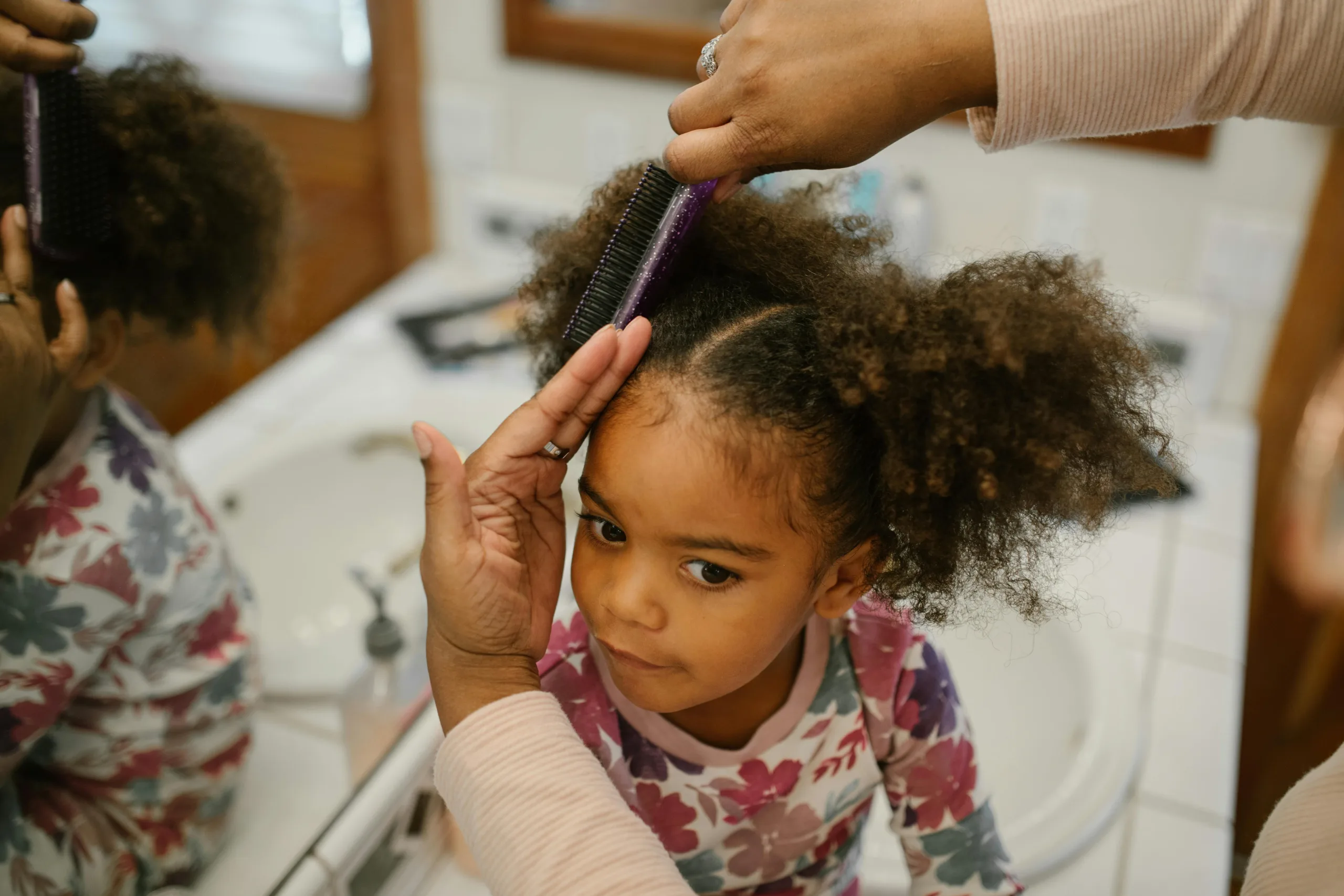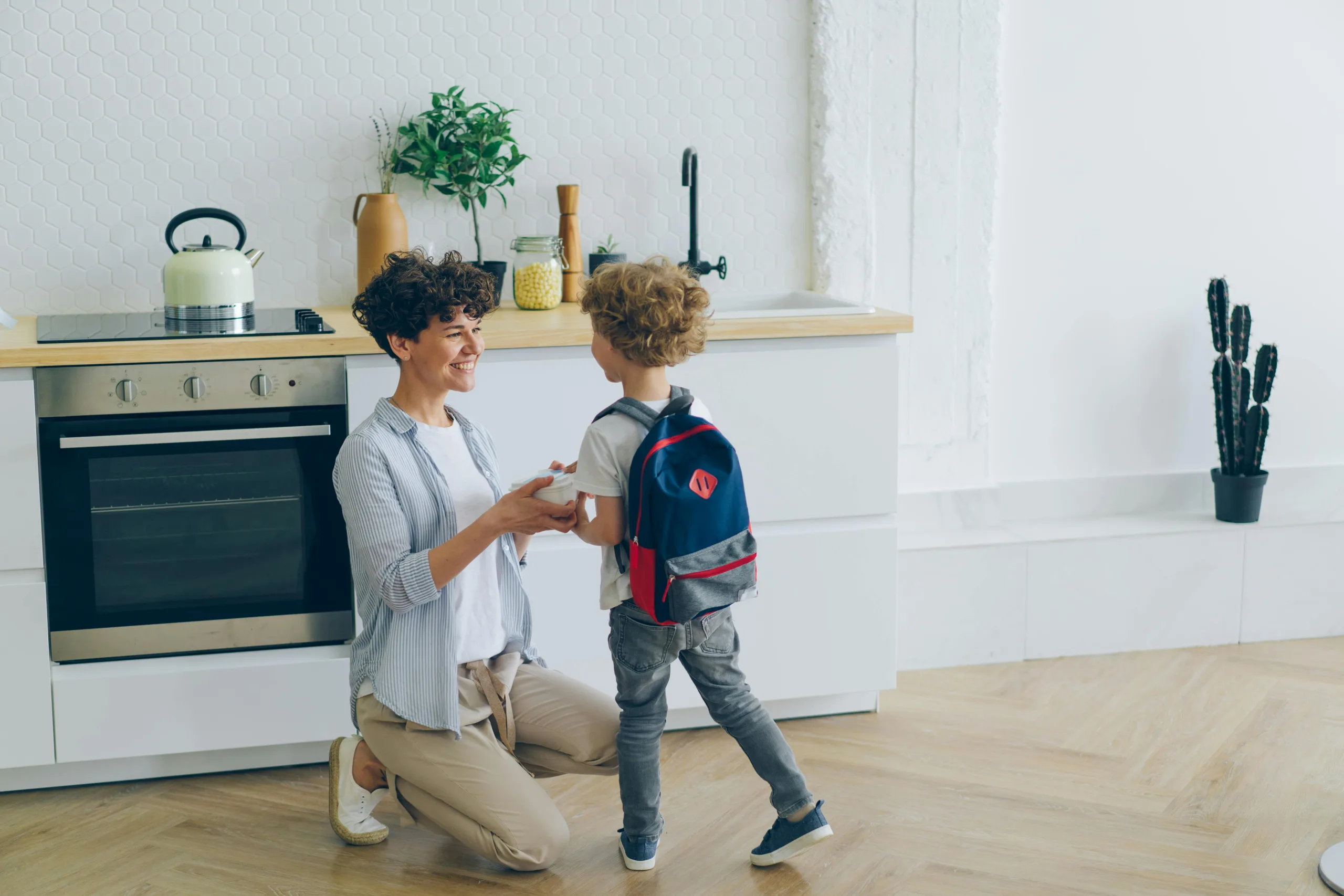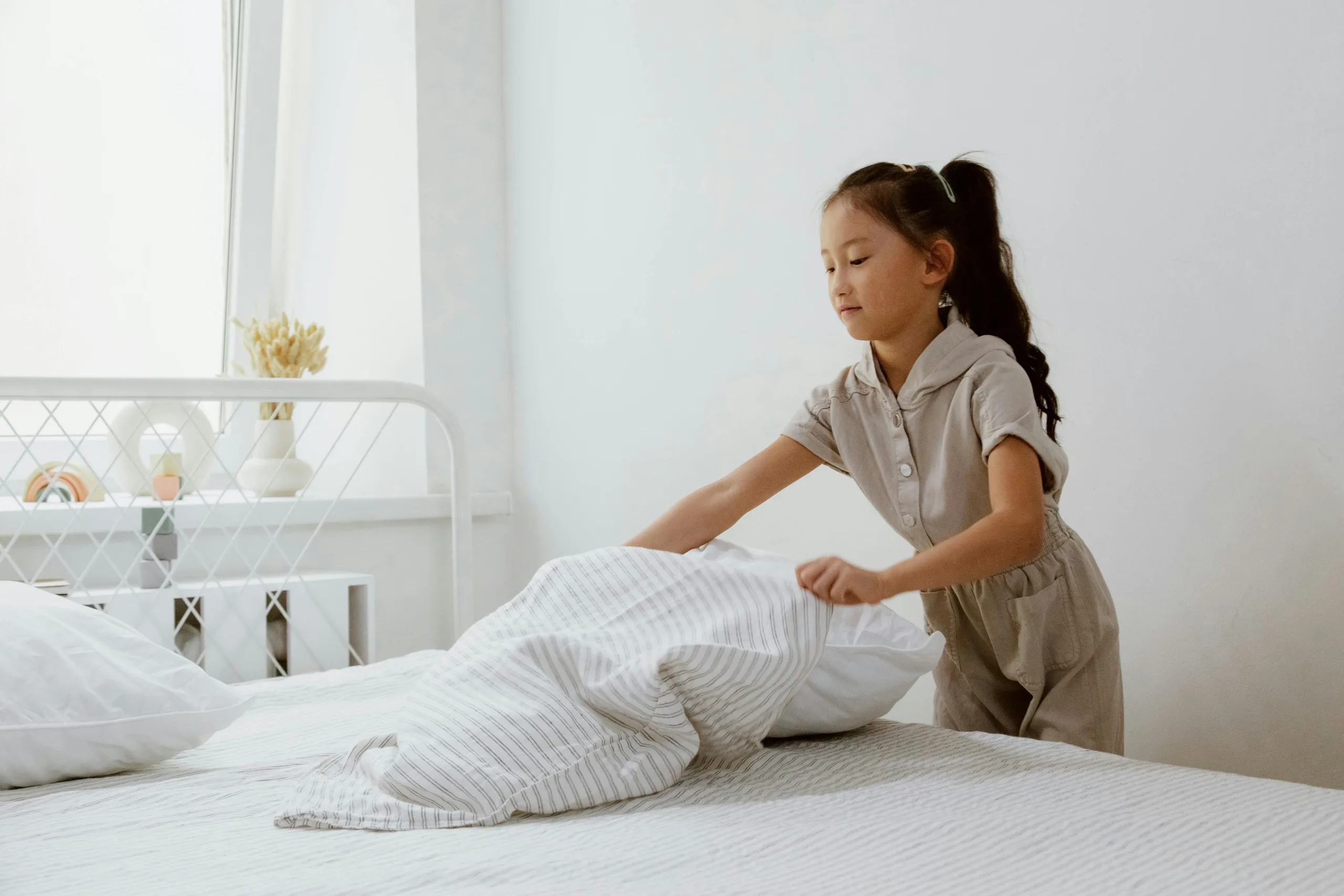Young children thrive on structure and predictability. While they may grumble about bathtime or resist heading to bed, routines provide a solid foundation that helps them feel secure and supported. More than just comfort, routines foster important life skills, emotional regulation, and independence.
The good news? Creating a routine isn’t as hard as it sounds. Start small, focus on what works best for your family, and build from there. This guide will walk you through everything you need to know to create and maintain effective routine tasks for kids.
Understanding Daily Routines for Kids
A routine is the sequence of daily tasks or activities a child experiences, creating a predictable rhythm for the day. Routines support children’s emotional well-being and help the household run smoothly. In fact, consistent daily routines for kids can improve social and emotional health by up to 47%.
Examples of Children’s Daily Routine
When building a routine, include activities that nurture your child’s emotional, physical, and social development. Here are examples of key tasks to include:
- Wake-up time
- Meals and snacks
- Nap or quiet time
- Bedtime and bath time
- Outdoor play and exercise
- Reading or homework
- Simple chores (tidying up toys, setting the table)
These tasks not only promote structure but also provide opportunities for learning and growth.
The Importance of Routines for Kids
We’ve already discussed why routines are so important for children, but let’s explore their many benefits for their growth and well-being.
Emotional Security
Routine tasks for kids provide a sense of safety and stability. When life feels predictable, children can navigate the world with confidence. This consistency is especially valuable during transitions, like starting school, welcoming a sibling, or moving to a new home.
Behavioral Regulation
Predictable schedules help children manage transitions, reduce meltdowns, and practice self-regulation. Knowing what to expect next lowers anxiety and helps kids move smoothly between activities.
Skill Development
Daily routines allow kids to practice essential skills, from brushing teeth to tidying up toys. They build independence, time management, and problem-solving abilities—tools that will serve them well into adulthood.
Why Routines Are Good for Parents, Too
Every parent knows the constant juggling act that comes with raising children. There’s always something that needs attention, and it can feel overwhelming at times. Yet despite its challenges, parenting is one of the most rewarding experiences a person can have, and those small moments of connection make it all worthwhile.
Fortunately, setting a routine for children can also help parents feel less overwhelmed and more in control of their daily lives. Here’s how:
Improved Time Management
Increased daily obligations and limited downtime are two of the most frequently mentioned challenges of parenthood. From early wake-ups to packing lunches and juggling after-school activities, it often feels like there’s never a moment to catch your breath. That’s where a consistent daily schedule benefits both parents and kids. It gives you control over the day’s flow, keeping things moving smoothly while still carving out those precious breaks to recharge.
Reduced Stress
Without a routine, running behind schedule or forgetting something important is easy. You’re also more likely to feel the pressure of last-minute decisions, which can lead to heightened stress levels. The more you settle into your children’s daily routine, the more hassle-free each day will be for you, too. You’ll move through your day by seamlessly tackling each task, thanks to a clear plan that keeps everything flowing smoothly. No more scrambling or feeling caught off guard—just a steady rhythm that helps you stay prepared and in control.
Easier Transitions
Children don’t always respond well to change—and we’re not just talking about big life changes, like starting school or welcoming a new baby sibling. Even little changes can cause quite a stir. You’ve probably noticed this already. Perhaps when you interrupt their favorite TV show to tell them it’s bathtime. Or when you take away their tablet before bed.
Thankfully, routine tasks for kids can help curb meltdowns by creating a predictable rhythm to the day. This rhythm helps children feel secure and prepared for transitions. With routines, parents can use gentle reminders or cues to ease the shift, reducing stress for everyone and keeping the day on track.
Better Behavior Management
Unpredictability can overstimulate a child’s ability to plan, focus, and regulate emotions, which are key components of executive functioning. As a result, children may express their frustration through outbursts, defiance, or other challenging behaviors.
When you stick to a consistent daily schedule, you empower your child to navigate their day, and they’re more likely to respond calmly and appropriately in various situations.
Increased Parental Confidence
It isn’t easy to see your child anxious or upset. When they’re not feeling at their best, it’s nearly impossible for you to feel at yours. You may even start to question your parenting abilities or feel emotionally exhausted—which is never good for you or your child.
Routines are one of the best ways to combat this cycle. When a daily routine is in place, you can anticipate your child’s needs and behaviors, leading to a sense of control over your household environment.
Consequences of a Lack of Routine
Now that we’ve highlighted the benefits of a routine let’s consider the potential difficulties of managing without one.
- Increased Anxiety: Routines give children a sense of control, which is critical for managing stress. According to research on child development, children who lack structure may feel powerless in their environment, contributing to feelings of anxiety, and are even more likely to experience mental health problems later in life.
- Behavioral Issues: Without a clear routine, children may struggle to understand what is expected of them and when certain behaviors are appropriate. If they are punished for behaviors they didn’t know were a problem, it can lead to frustration and a lack of understanding about what went wrong. This confusion can prevent them from learning how to improve their behavior.
- Developmental Delays: Routines help children develop key skills and meet specific growth milestones. Without routines, these skills can take longer to build. In one study, for example, children lacking routine scored lower on receptive vocabulary and delayed gratification. Sleep problems and issues around leaving the house, eating, or going to the bathroom are also common.
How to Create Effective Routine Tasks for Kids
Building a routine doesn’t have to be overwhelming. Follow these steps for a smooth start:
- Identify Key Daily Activities: Pinpoint the essential tasks your child needs to complete each day, such as meals, school, and bedtime.
- Establish a Consistent Schedule: Next, consider how much time you can realistically spend on each task. Set realistic timeframes for each activity, ensuring the schedule works for your family’s needs. For example, if work starts at 9 a.m., you’ll need to make sure you get dressed and have breakfast before then.
- Involve Your Child in the Process: Let your child take part in setting routines, like choosing a bedtime story or packing their backpack. This involvement encourages cooperation and ownership.
- Be Flexible and Adjust as Needed: Life happens. If a routine gets disrupted, adapt and refocus without stress. Routines work best when they’re consistent but forgiving.
- Use Visual Aids: Charts or sticker boards work wonders in helping young children understand what’s expected of them throughout the day. For younger children, charts, checklists, or sticker boards can make routines fun and easy to follow.
Tips for Maintaining Routines
Starting routines is one thing, but keeping them going is key. Here’s how to stay on track:
- Consistency is Key: Stick to the schedule as closely as possible while allowing for occasional flexibility.
- Positive Reinforcement: Praise your child for following routines, especially when they do tasks independently.
- Model the Behavior: Show your child that routines apply to everyone in the family.
The Role of Unstructured Time in Daily Routines
We’ve all heard the saying, “Too much of a good thing can be a bad thing.” This saying applies to establishing routines for children. While creating structure and familiarity is great for children, they also need room to create, explore, and play without limits.
Not only does unstructured play help children develop their gross and fine motor skills, but it also allows them to explore their choices freely, building confidence and sharpening their decision-making in a relaxed, no-pressure setting. This is why carving out free time in your child’s day is important. They get to unleash their imagination and fully experience the joy of being a kid!
Building Confidence and Stability with Structured Routines
Routines are the key to helping kids feel secure, confident, and capable. By implementing predictable schedules, you’ll support your child’s growth while reducing stress and chaos for the whole family.
Feeling overwhelmed? You don’t have to do it alone.
An Au Pair can provide the extra support you need to manage routines while balancing a busy schedule. From helping with morning prep to guiding kids through after-school tasks, an Au Pair ensures your child’s day is structured, engaging, and full of care.
Ready to see how an Au Pair can transform your family’s daily routine? Get started today and find the perfect Au Pair for your family.




